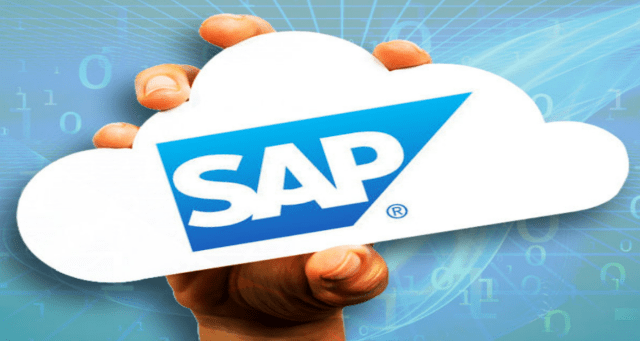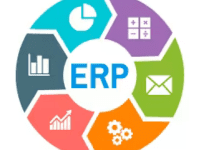10 SAP Implementation Benefits for Business in 2023 – SAP implementation has become a crucial step for businesses striving to thrive in the fast-paced and competitive landscape of 2023.
As companies embrace digital transformation, SAP, which stands for Systems, Applications, and Products in Data Processing, offers a comprehensive suite of integrated business solutions.
In this article, we will explore the top 10 benefits that SAP implementation brings to businesses, enabling them to optimize operations, improve efficiency, and achieve sustainable growth.
10 SAP Implementation Benefits for Business

1. Improved Efficiency and Productivity
SAP implementation provides businesses with streamlined processes and automated workflows. By centralizing data and eliminating manual tasks, companies can optimize their operations and boost productivity.
From procurement and inventory management to financial accounting and human resources, SAP integrates various functions, reducing redundant efforts and enabling employees to focus on value-added activities.
Also Read : Bees ERP Login: Empowering Students to Excel in Academic Management
2. Enhanced Data Management and Analysis
In the era of big data, businesses need efficient data management and analysis capabilities to gain valuable insights.
SAP implementation offers robust tools for data collection, storage, and analysis, enabling companies to make data-driven decisions. With real-time reporting and analytics, organizations can monitor performance, identify trends, and seize opportunities promptly.
3. Streamlined Business Processes
SAP implementation enables end-to-end process integration, eliminating silos and enhancing collaboration across departments. By connecting various functions, such as finance, sales, and supply chain, SAP optimizes workflows, reduces bottlenecks, and ensures smooth information flow.
This streamlined approach improves coordination and accelerates decision-making, resulting in faster time-to-market and improved customer satisfaction.
4. Real-Time Decision-Making
In today’s fast-paced business environment, timely decision-making is critical. SAP implementation offers real-time data visibility, allowing businesses to monitor key performance indicators and respond swiftly to market changes.
With accurate and up-to-date information at their fingertips, decision-makers can make informed choices, seize opportunities, and mitigate risks effectively.
5. Integrated Business Functions
One of the significant advantages of SAP implementation is the integration of various business functions into a unified system.
From finance and accounting to sales and customer relationship management (CRM), SAP provides a centralized platform, ensuring seamless communication and data synchronization. This integration eliminates data inconsistencies, enhances collaboration, and enables a holistic view of the business.
6. Cost Savings and ROI
Implementing SAP may require an initial investment, but it brings long-term cost savings and a high return on investment (ROI). By automating processes, reducing manual errors, and optimizing resource allocation, SAP helps businesses cut costs and improve operational efficiency.
Moreover, the comprehensive analytics and reporting capabilities enable organizations to identify areas of waste and optimize spending.
7. Better Customer Relationship Management
SAP implementation empowers businesses to enhance their customer relationship management (CRM) efforts.
By integrating customer data, sales processes, and service management, SAP enables personalized and targeted interactions with customers. This improves customer satisfaction, loyalty, and ultimately, business revenue.
8. Scalability and Flexibility
As businesses grow and evolve, their systems need to adapt accordingly. SAP implementation provides scalability and flexibility, allowing organizations to scale their operations and accommodate changing business requirements.
With SAP’s modular architecture, businesses can add new functionalities, expand user access, and integrate with third-party applications as needed.
9. Regulatory Compliance
Compliance with industry regulations and standards is crucial for businesses operating in 2023. SAP offers built-in compliance features, ensuring organizations meet legal requirements and maintain data integrity.
From data privacy regulations to financial reporting standards, SAP provides the necessary tools and controls to help businesses stay compliant and avoid costly penalties.
10. Competitive Advantage
In today’s competitive business landscape, gaining a competitive edge is vital. SAP implementation equips businesses with advanced tools and functionalities that set them apart from their competitors.
By leveraging SAP’s extensive capabilities, organizations can deliver superior products and services, improve customer experiences, and position themselves as industry leaders.
Case Studies of Successful SAP Implementations
Several companies have experienced significant benefits from SAP implementation. For instance, Company A, a multinational manufacturing firm, achieved a 20% increase in operational efficiency after implementing SAP’s integrated solutions.
Company B, a global retailer, saw a 15% reduction in inventory holding costs and a 30% improvement in order fulfillment accuracy through SAP’s streamlined processes.
Challenges and Risks of SAP Implementation
While SAP implementation offers numerous benefits, it also comes with challenges and risks that organizations must address.
Some common challenges include the complexity of implementation, data migration, and user adoption. To mitigate these risks, businesses should engage experienced SAP consultants, develop a robust implementation plan, and provide comprehensive training to employees.
Best Practices for Successful SAP Implementation
To ensure a successful SAP implementation, businesses should follow best practices. Firstly, they should define clear goals and objectives and align them with the organization’s strategic vision.
Engaging stakeholders, conducting thorough system testing, and maintaining open communication throughout the implementation process are also critical. Additionally, organizations should prioritize change management and provide ongoing support to employees to facilitate smooth transitions.
Future Trends and Innovations in SAP Implementation
The future of SAP implementation holds exciting prospects for businesses. Emerging trends include the integration of artificial intelligence (AI) and machine learning (ML) technologies, enabling predictive analytics and intelligent automation.
Furthermore, SAP is embracing cloud-based solutions, enabling businesses to leverage the scalability, accessibility, and cost-efficiency of the cloud. As technology continues to evolve, SAP implementation will evolve with it, empowering businesses with innovative tools for growth and success.
Conclusion
In conclusion, SAP implementation offers significant benefits for businesses in 2023. From improved efficiency and productivity to enhanced data management and analysis, SAP enables organizations to optimize their operations, make informed decisions, and gain a competitive edge.
However, successful implementation requires careful planning, addressing challenges, and following best practices. By leveraging SAP’s capabilities and staying abreast of future trends, businesses can unlock new opportunities and achieve sustainable growth in the dynamic business landscape of 2023.
FAQs
1. How long does SAP implementation typically take? The duration of SAP implementation can vary depending on the size and complexity of the organization. On average, implementation projects can range from several months to a year or more.
2. Is SAP implementation only suitable for large enterprises? No, SAP implementation can benefit businesses of all sizes. SAP offers solutions tailored for small and medium-sized enterprises (SMEs) as well.
3. Can SAP implementation be customized to meet specific business needs? Yes, SAP implementation can be customized to align with specific business requirements. SAP provides a range of modules and configuration options that can be tailored to suit individual organizations.
4. What are the costs associated with SAP implementation? The costs of SAP implementation include licensing fees, implementation services, hardware infrastructure, and ongoing maintenance and support. It is essential to carefully evaluate the costs and benefits before embarking on an implementation project.
5. Is employee training necessary for SAP implementation? Yes, comprehensive employee training is crucial for successful SAP implementation. Training programs should be designed to familiarize employees with SAP’s functionalities and ensure effective system utilization.




